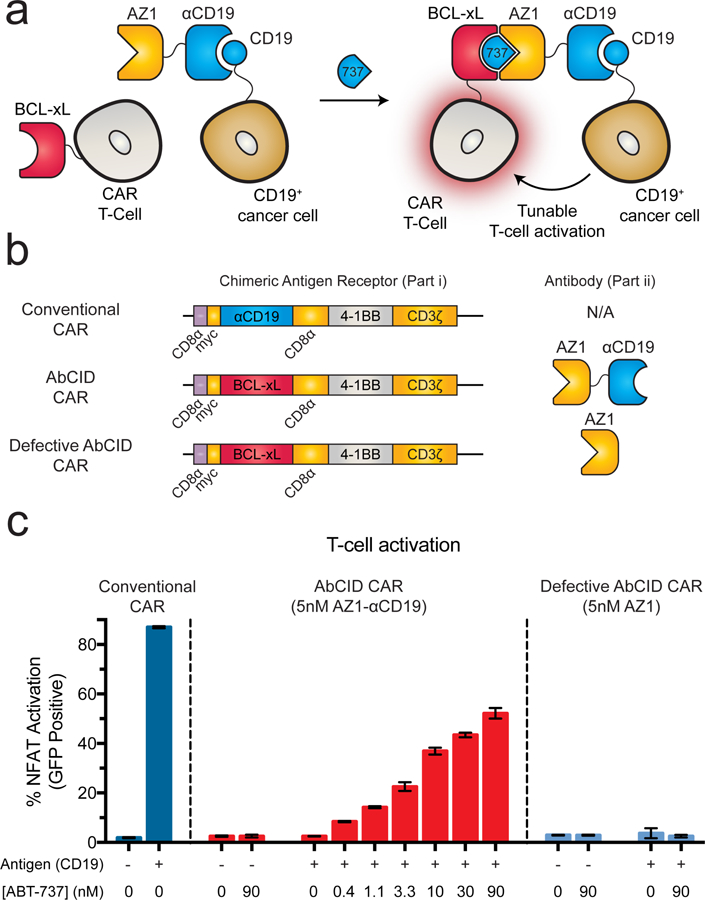Figure 4.

AZ1 can be utilized as an extracellular AbCID to regulate CAR T-cell activation. (a) Schematic of AbCID-regulated CAR T-cell activation where the CAR contains an extracellular BCL-xL domain in place of the typical scFv. Addition of an AZ1-αCD19 bispecific antibody and various concentrations of ABT-737 results in recruitment to CD19+ cancer cells and tunable activation of the CAR T-cells. (b) Linear diagrams of the gene constructs used to produce the CARs and schematics of corresponding antibodies for this study. (c) Quantification of NFAT-dependent GFP reporter expression 20 hours after initiation of co-culture with either CD19+ or CD19– K562 target cells and addition of antibody (5 nM) and varying concentrations of small molecule. Addition of ABT-737 in the presence of CD19+ K562 cells and bispecific antibody resulted in dose-dependent activation of the NFAT pathway, but no activation was observed in the absence of ABT-737 or when co-cultured with CD19– K562 cells. The defective AbCID CAR, which lacks the CD19-binding scFv portion of the antibody, resulted in no activation under all conditions. Each data point represents the mean of 3 independent experiments ± s.d.
